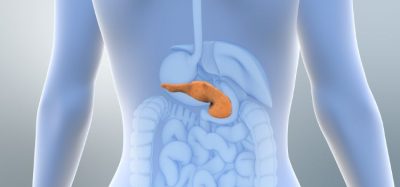FDA waives trial requirement for Stelera biosimilar, easing the copycat’s path
Posted: 2 September 2025 | Catherine Eckford (European Pharmaceutical Review) | No comments yet
First-of-its-kind case continues EMA and MHRA harmonisation, streamlining the global biosimilar approval pathway.


The US Food and Drug Administration (FDA) has agreed to waive for the first time the clinical efficacy study (CES) requirement for a monoclonal antibody biosimilar.
The decision on a potential version of Johnson & Johnson’s immunology blockbuster Stelara (ustekinumab) would make it the first such FDA biosimilar application to be filed without requiring clinical testing.
It also puts the FDA on the same path as the European Medicines Agency (EMA) and the UK’s Medicines and Healthcare products Regulatory agency (MHRA) and supports ongoing biosimilar regulatory harmonisation.
In addition to changing how these medicines will be developed and approved in the US, the move could also have important implications for their cost effectiveness by leading to lower development costs, faster approval timelines and pricing that could match the competitiveness of generic small-molecule drugs.
Despite their vital role in biosimilar approval, in addition to their expense, CESs have not been able to demonstrate meaningful failure outcomes, according to the regulatory consultants Pharmaceutical Scientist, who point to citizen petitions and peer-reviewed publications.
[the FDA’s acceptance] ushers in a new era where innovation is not held hostage by outdated testing requirements. It will fundamentally reshape the economics of biosimilars and expand access globally”
The FDA application was filed by Pharmaceutical Scientist founder and Adjunct Professor at the University of Illinois at Chicago Professor Sarfaraz Niazi, who reasoned that “analytical similarity and immunogenicity studies are sufficient to confirm biosimilarity”.
Pharmaceutical Scientist said Professor Niazi’s first-of-a-kind biosimilar application for ustekinumab being filed with the FDA, marks “a precedent-setting regulatory breakthrough”.
Progressing the field for biosimilars
Where entry to the biosimilar market was previously dominated by major pharmaceutical companies, Professor Niazi underlined that with imminent affordability of developing biosimilars, now is a prime time for mid-sized and small generic companies to join the field.
One company moving in this direction is Sandoz. Last month, the firm agreed to acquire Just-Evotec Biologics’ Toulouse site to develop and manufacture its own biosimilars.
Ultimately, the FDA’s acceptance “ushers in a new era where innovation is not held hostage by outdated testing requirements. It will fundamentally reshape the economics of biosimilars and expand access globally,” concluded Professor Niazi.
Related topics
Big Pharma, Biosimilars, Biotech, Clinical Development, Clinical Trials, Drug Development, Drug Markets, Drug Safety, Industry Insight, Regulation & Legislation, Research & Development (R&D), Therapeutics









